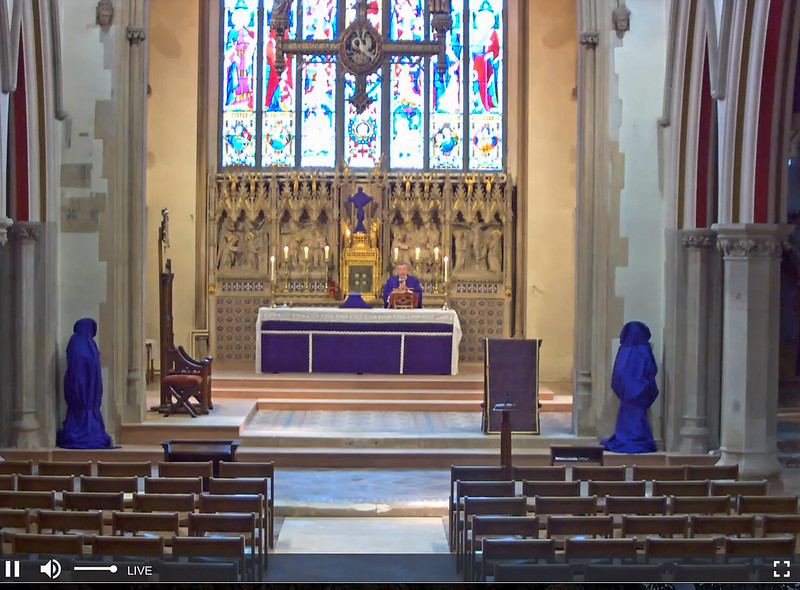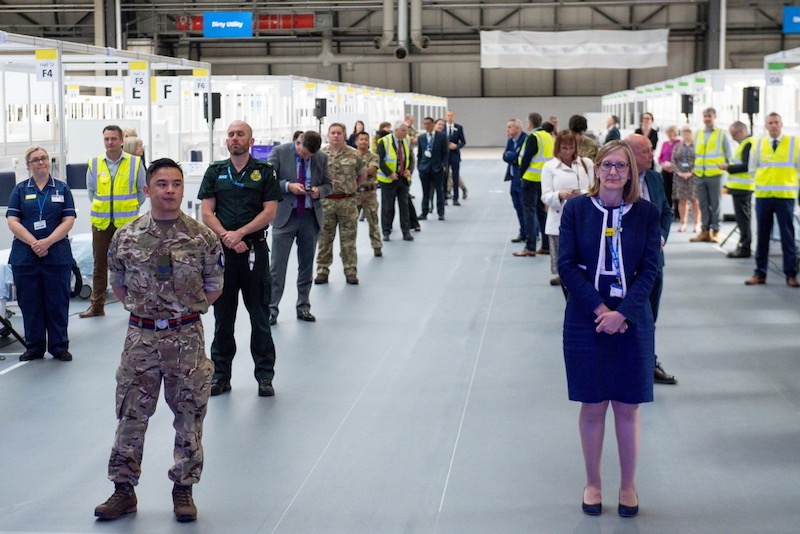Catholic chaplains in Britain and Ireland have spoken of their experiences ministering to those sick and dying with coronavirus in hospital.
Fr James Mackay, parish priest of Our Lady of Walsingham, Custom House, East London, is heading a team of nine priests at the NHS Nightingale London, with regular phone support from his bishop and vicar general. “It is incarnational how we are a field hospital,” he told The Tablet.
Fr Mackay is allowed to bring sacraments to the sick and dying at their bedsides and minister to staff and bereaved families.
“The first patient to die in the Nightingale was a Catholic and in the presence of his wife and two nurses I anointed him,” he said. Wearing full protective gear, he used a cotton bud to administer the oil and hovered his hand over his head which was “just as profound” as touching the patient, and was “massively meaningful” to the patient’s family in Ireland. He baptised another patient, at the request of his son.
Three patients have died at the Nightingale among 30 patients overall, with several hundred others expected in the coming weeks.
Fr Mackay has been in every day since the hospital opened, and the chaplaincy is available 24 hours a day for end of life care. As well as praying with non-Christian colleagues and patients, he said there was also an active ministry to staff and volunteers.
“The ministry is very fruitful in terms of spreading the Gospel” he said. “We are already feeling value in the response of doctors and workers to us, who are saying that it is good that we are here”.
In the Archdiocese of Birmingham, Fr Craig Fullard, a hospital chaplain with the Royal Wolverhampton NHS Trust, told The Tablet that trusts in the Archdiocese had invited chaplains into the hospitals.
They are given training and provided with personal protective equipment and are told they are needed for staff and families, as well as patients.
“The chaplains are allowed to visit wards, following all the hospital guidelinesand we can anoint using cotton buds,” he said Sacramental care is very important for patients and he spends significant time supporting staff too.
He described the ministry as “a new way of being parish” and expressed his admiration for the “amazing front line workers who are in there for 12-hour shifts”.
Bishop Paul Mason, the bishop responsible for healthcare, told The Tablet this week that whatever support chaplains are giving, in line with policies of the hospitals in which they serve, it is “a great opportunity to give witness and is much appreciated by patients, families and staff”.
Official Church policy, particularly amid reports of shortages of personal protective equipment, is for priests to provide as much pastoral care as possible by non-face-to-face means, to reduce the spread of the virus. This would include offering spiritual communion.
However, hospital trusts have varying policies. Bishop Tom Williams, auxiliary in Liverpool, and with a background in chaplaincy himself, said: “In Liverpool Archdiocese, and mainly because of our high percentage of Catholic Population, we have a strong tradition of cooperation and support from our hospital trusts”. He told The Tablet that chaplains “are often the bridge between the clinical teams, the patients and their families”.
In Dublin some of the 76 chaplains serving in the Archdiocese have described harrowing scenes in the city’s hospitals.



 Loading ...
Loading ...